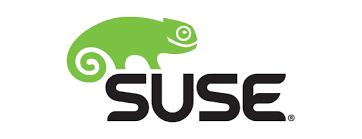This two day course introduces students to SUSE Enterprise Storage and provides them with the skills to access, administer and monitor a basic storage cluster.
This course will prepare participants to take and pass the SUSE Certified Administrator (SCA) in Enterprise Storage exam once released.
Key Objectives
In this course, attendees will learn to:
- Understand SES components and architecture
- Understand and use RADOS, OSDs, Monitors and Ceph data placement
- Create, manage, and manipulate storage pools
- Fine-tune the CRUSH map for optimum data durability
- Use Erasure Coding
- Manage and Monitor the SES cluster using the Ceph Dashboard
- Understand and troubleshoot common problems
Course Outline
- Section 1: Course Introduction and Overview
- Section 2: Introduction to SUSE Enterprise Storage
- Section 3: Pools and Data Placement
- Section 4: Overviewing of Accessing Storage
- Section 5: Common Day 1 Tasks Using the CLI
- Section 6: Ceph Dashboard
- Section 7: Basic Troubleshooting of SUSE Enterprise Storage
Course Prerequisites
Attendees should have Linux System Administration skills equivalent to SUSE Certified Administrator in Enterprise Linux. Familiarity with other storage solutions and distributed filesystems is helpful but not essential.
For more information please contact Florin Anton (florin.anton@upb.ro)
This course prepares the participants to take and pass the SUSE Certified Administrator (SCA) in OpenStack Cloud exam.
Audience
This course is designed for system administrators and others who want to learn how to administer a SUSE OpenStack Cloud.
Prerequisites
Attendees should have familiarity with the Linux Command Line, Linux System Administration skills and attention to detail. SUSE Certified Administrator (SCA) in Enterprise Linux or SUSE Certified Linux Engineer (SCE) in Enterprise Linux certification, or an equivalent level of experience, is recommended.
Duration
2 days. Hands on.
Course Objectives
Participants receive a comprehensive understanding of the tasks necessary to administer a SUSE OpenStack cloud and then use common tools that are included with a SUSE OpenStack Cloud distribution.
This course prepares the participants to take and pass the SUSE Certified Administrator (SCA) in OpenStack Cloud 9 exam.
During this course you will learn to:
- Create and Manage Projects and Users
- Import and Use Cloud Images
- Create and Use Software Defined Networks
- Configure and Access Object and Block Storage
- Launch Workload Instances in the Cloud
Course Content
Section 1: Introduction and Course Overview
Section 2: Introduction to SUSE OpenStack Cloud
Section 3: Introduction to OpenStack Administration
Section 4: Introduction to the OpenStack Identity Service
Section 5: Work with OpenStack Projects and Users
Section 6: Work with Cloud Images
Section 7: Work with Software Defined Networks in OpenStack
Section 8: Work with Workload Instances
Section 9: Work with Block Storage in OpenStack
Section 10: Work with Object Storage in OpenStack
For more information please contact Florin Anton (florin.anton@upb.ro).
This course is designed for those who are seeking a fundamental understanding of the SUSE Linux Enterprise Server (SLES) operating system.
Students will be able to configure a SLES server and integrate it into an existing network. They will be able to perform the most important system administration tasks.
This course helps prepare students for the SUSE Certified Administrator in Enterprise Linux certification exam.
Course Information
Delivery Method: Classroom, eLearning
Course Duration: 4 days
Course Level: Beginner
Key Objectives
Attendees will be taught the following concepts and skills that are fundamental in administering the SLES Operating System:
- Become familiar with the command line interface & commonly used commands
- Configure and use Remote Administration
- Manage the boot process and understand systemd
- Manage processes and jobs
- Manage users and permissions
- Manage software
- Configure basic networking
- Manage storage
- Monitor SUSE Linux Enterprise
Audience Summary
This course is designed for those who have little or no experience with Linux and who are seeking a fundamental understanding of the SUSE Linux Enterprise operating system. It is also ideal for those who want to begin preparing for the SUSE Certified Administrator in Enterprise Linux certification exam.
Course Outline
- Section 1: Overview of SUSE Linux Enterprise
- Flavors of SUSE Linux
- SLE Maintenance Model
- YaST
- Section 2: The Linux Filesystem
- Understand the Filesystem Hierarchy Standard (FHS)
- Understand the Linux File Types
- Section 3: Work with the Command Line
- Getting Help at the Command Line
- Understand the Shell Environment
- Section 4: The Vim Editor
- Section 5: Remote Administration
- Understand Remote Administration with OpenSSH
- Understand Remote Administration with VNC
- Section 6: System Initialization
- Understand the Boot Process
- Understand the GRUB2 Boot Loader
- Define and Describe systemd
- Section 7: Process Management
- Understand Process Administration
- Understand Background Processes
- Understand Process Scheduling
- Understand xinetd
- Section 8: Identity and Security
- Understand User Management
- Understand Filesystem Permissions
- Understand Privilege Delegation
- Section 9: Software Management
- Understand Compiling Software from Source
- Understand Management of RPM Packages
- Understand Software Management with Libzypp
- Section 10: Network Management
- Understand Network Management in SLE
- Understand Network Management with Wicked
- Understand firewalldl
- Section 11: Storage Management
- Understand the Linux I/O Stack
- Recognize Traditional Linux File Systems
- Configure Logical Volume Management (LVM)
- Configure Software RAID
- Define and Describe BtrFS
- Understand NFSv4
- Section 12: Administration and Monitoring
- Understand Time Sync with chrony
- Configure System Logging
- Understand Supportconfig
Course Prerequisites
This course is designed for students without previous Linux experience. Basic computer skills on any operating system is required.
For more information please contact Florin Anton (florin.anton@upb.ro)
